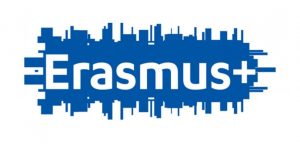- 49 (0) 162 77 25 333
- j.godfrey@gai-edu.eu
Menu
Home » Projects » Programmes » Erasmus+
E rasmus+ replaces seven programmes bringing together the Lifelong Learning Programme (Erasmus, Leonardo da Vinci, Comenius and Grundtvig) the Youth in Action programme five international cooperation programmes (Erasmus Mundus, Tempus, Alfa, Edulink, the programme for cooperation with industrialised countries)
rasmus+ replaces seven programmes bringing together the Lifelong Learning Programme (Erasmus, Leonardo da Vinci, Comenius and Grundtvig) the Youth in Action programme five international cooperation programmes (Erasmus Mundus, Tempus, Alfa, Edulink, the programme for cooperation with industrialised countries)
Please check out this link below where all the essential presentation are posted !!!
https://eu.daad.de/veranstaltungen/aktuell/uebersicht/de/29034-weltweit-kooperieren-in-erasmus-startkonferenz-zur-internationalen-dimension-von-erasmus/
Erasmus + provides grants for a wide range of actions and activities in the fields of education, training, youth and sport. The programme gives opportunities to students, trainees, staff and volunteers to spend a period abroad to increase their skills and employability. It supports organisations to work in transnational partnership and to share innovative practices in the fields of education, training and youth. The new sport action will support grassroots projects and cross-border challenges such as combating match-fixing, doping, violence and racism.
The actions of the Erasmus + programme are divided into decentralised actions and centralised actions. The decentralised actions are managed in each programme country by National Agencies that are appointed by their national authorities. The centralised actions are managed at a European level by the Education, Audiovisual and Culture Executive Agency (EACEA) located in Brussels. For strands of the Erasmus+ programme that work with countries outside the EU and other Programme Countries (i.e. Partner Countries), National Erasmus+ Offices have been set up in a number of these eligible Partner Countries. For those interested in Programme Countries, National Agencies also have an International Contact Point for these strands.
The application process for the centralised actions is initiated in one of the following ways:
Certain actions are included in the General Call for proposals and the details of these actions are outlined in the Erasmus + Programme Guide :
EACEA is in charge of the complete life-cycle management of projects, from the promotion of the programme, the analysis of the grant requests, the on-the-spot monitoring of projects, up to the dissemination of the projects’ and programme’s results. More about EACEA.
EACEA is currently preparing the information relating to the centralized actions of the Erasmus+ Programme.
Study and Volunteering in another country
Cooperation for innovation and good practices
Please get in contact with us through whatsapp,Zoom and or call us to assist you in any service needs.
Max-Joseph Str. 9
69123 Heidelberg, GERMANY
Phone: +49 162 7725 333
Email: j.godfrey@gai-edu.eu
Contact Us ›
EuropeAid ID: DE-2015-GSX-0312331880
PIC: 923810541
© German Academic Institute. All Rights Reserved 2023
Website designed by: NORMEDIUS